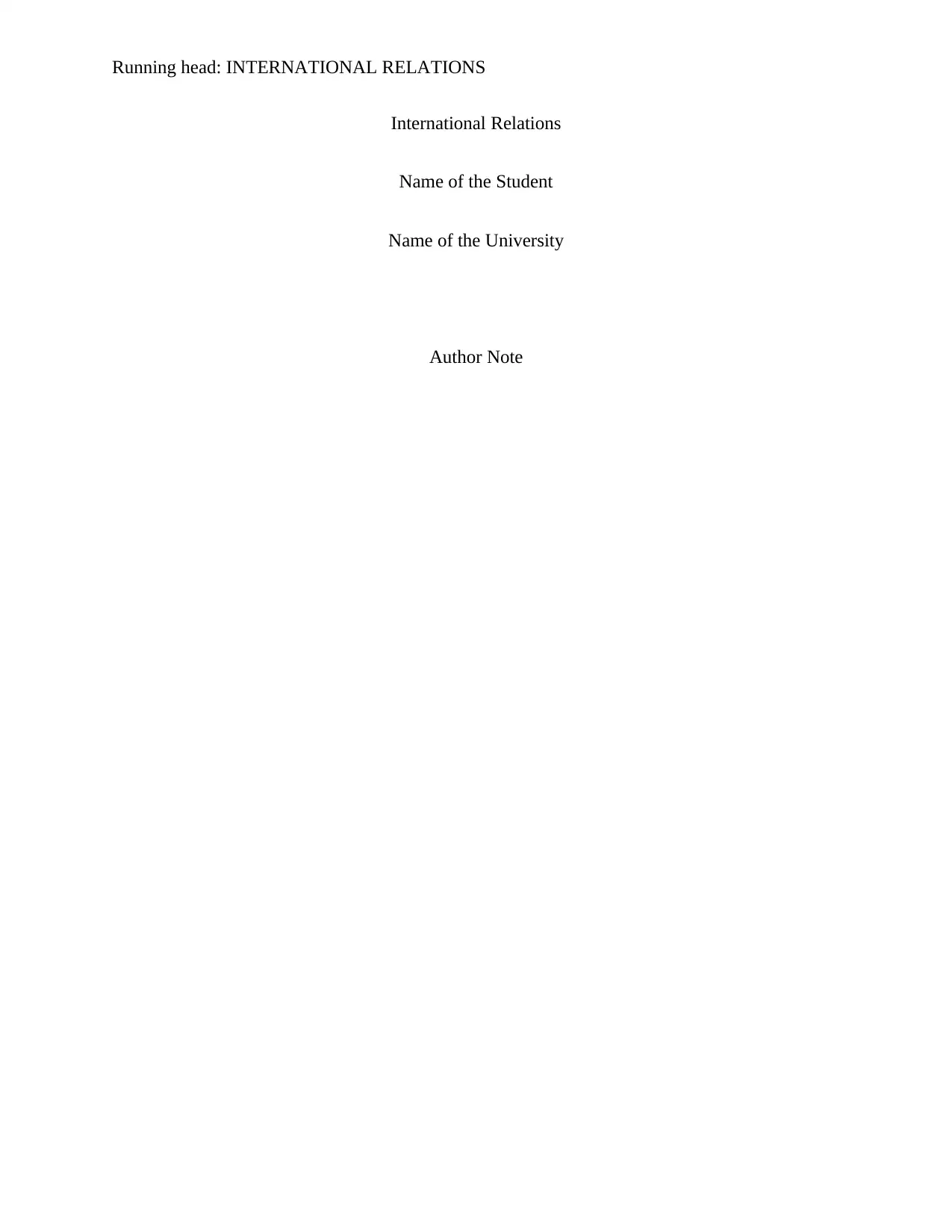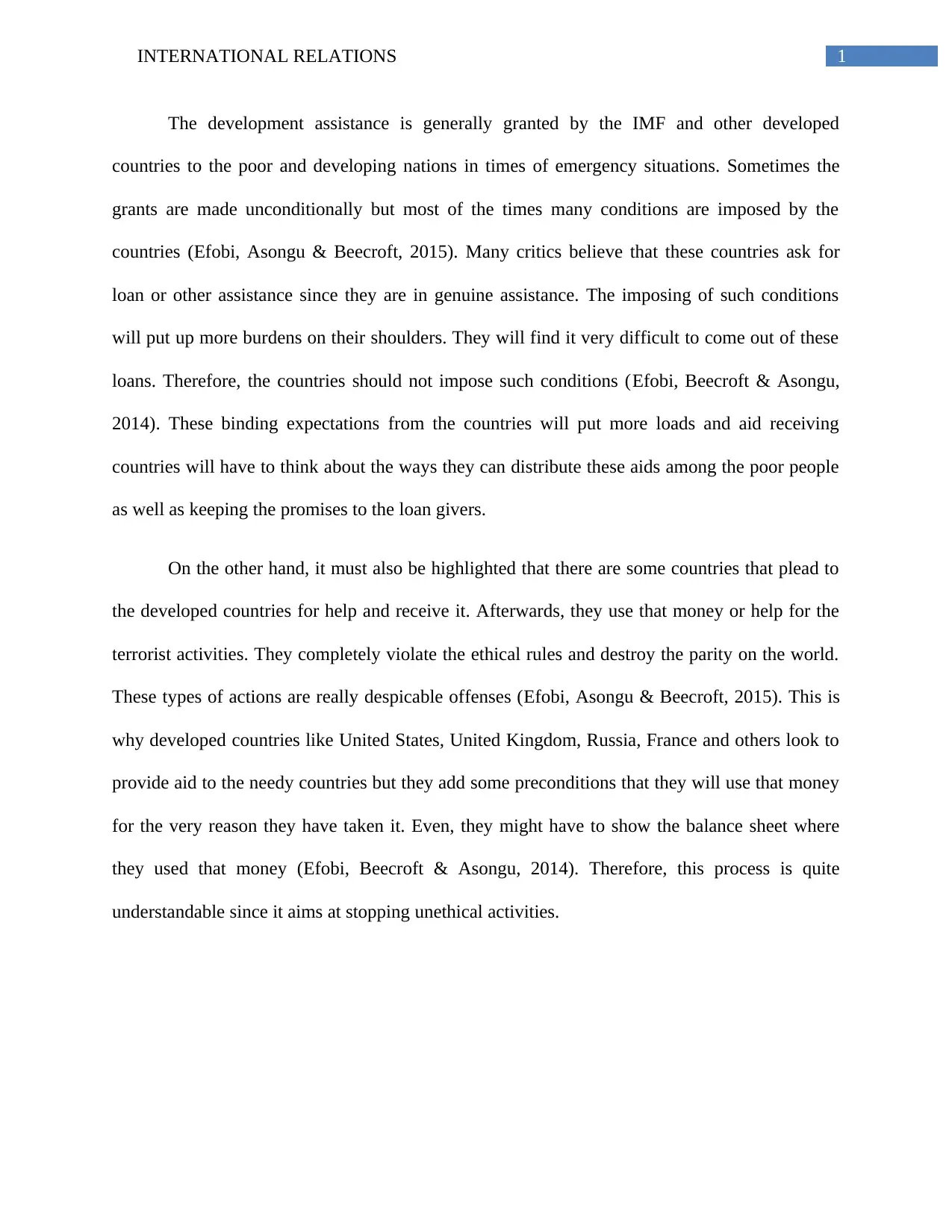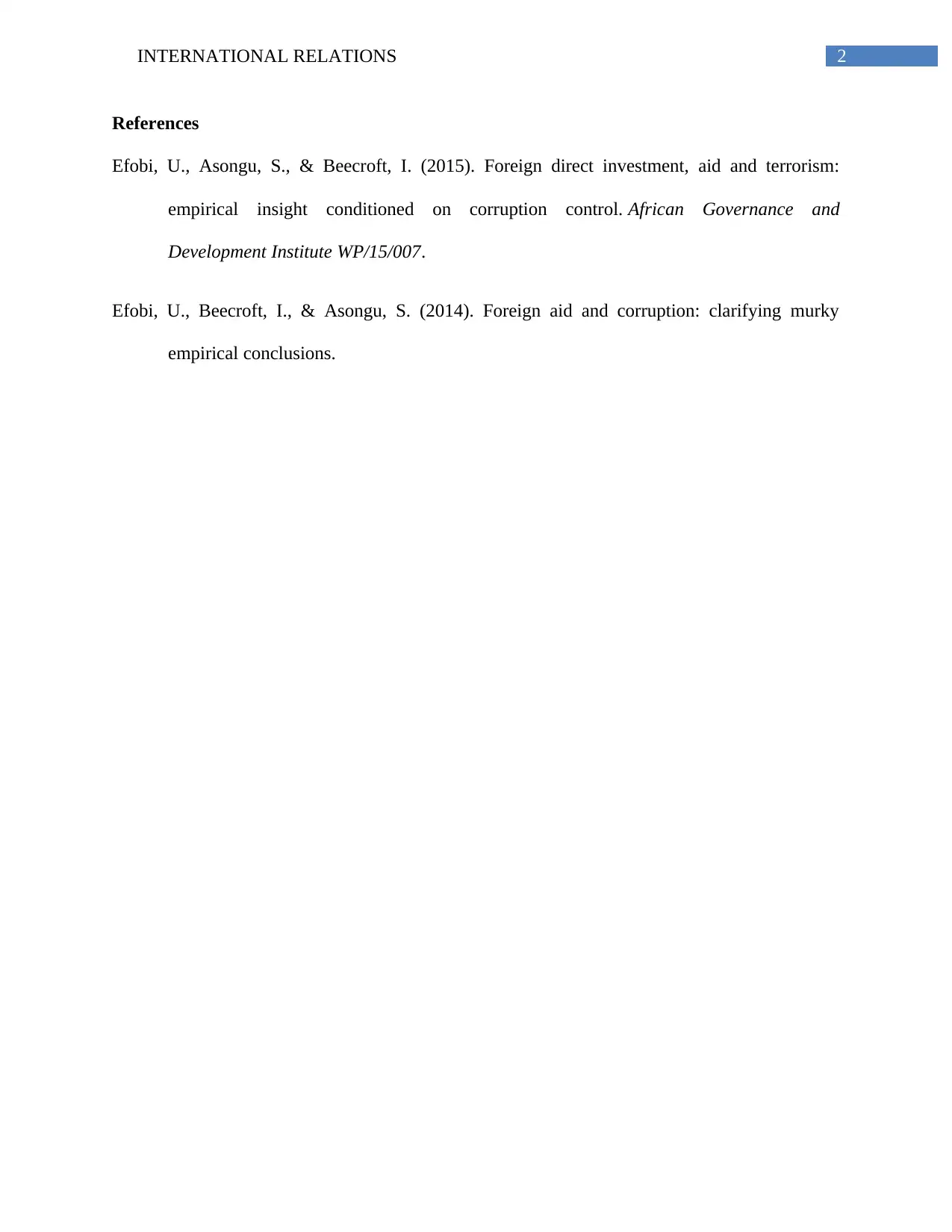International Relations: Aid, Development, and Ethical Concerns
VerifiedAdded on 2022/09/08
|3
|402
|17
Report
AI Summary
This report delves into the complexities of international relations, specifically focusing on the role of aid and development in various countries. It examines the conditions often imposed by developed nations on aid recipients, and discusses the ethical implications of these conditions. The report explores the potential for corruption and misuse of funds, highlighting the importance of transparency and accountability in aid distribution. Furthermore, it addresses the challenges faced by aid-receiving countries in managing these funds and meeting the expectations of the donor countries. The report also touches upon the issue of unethical activities, such as terrorism, and how it affects the process of providing aid. Overall, the report aims to provide a comprehensive analysis of the multifaceted issues surrounding international aid and its impact on the global landscape.
1 out of 3










![[object Object]](/_next/static/media/star-bottom.7253800d.svg)